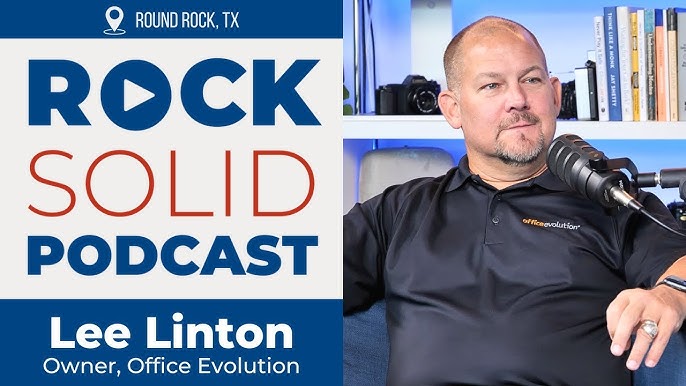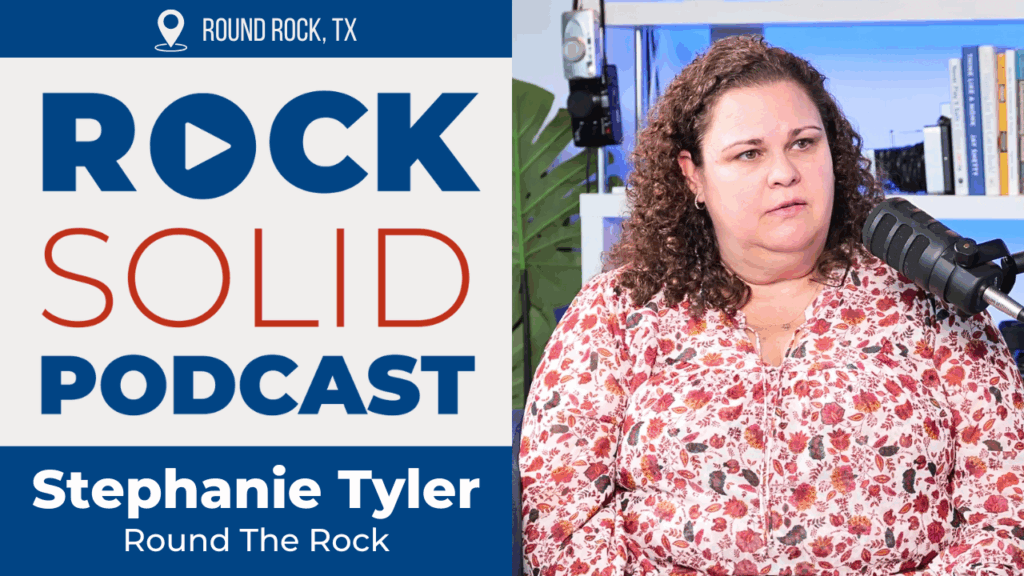Ever feel the room change when ideas hit fresh ears? At the Round Rock Chamber’s Startup Day hosted by Texas State’s Round Rock campus, Vice President Julie Lessiter asked who was visiting for the first time and most hands flew up. In that single moment the community saw what happens when higher education opens its doors to hometown innovators.
Startup Day proved it. The Round Rock Chamber hand-picked pitchers who each had five minutes to share a problem and a fix, all on a stage that sat inside a university built for problem-solving. Julie called it “an impactful intersection between higher education and entrepreneurship,” and the crowd nodded.
Texas State Round Rock now offers eighteen undergraduate, eleven graduate, and two doctoral programs, with freshmen welcomed for the first time last fall. Nursing and health still shine, but business, computer science, data analytics, psychology, social work, and education now fill the schedule. Students skip Interstate 35 traffic, study close to home, and graduate ready for work right here.
The help stretches beyond classrooms. A physical therapy clinic, a speech–language clinic, and a sleep-study partnership give neighbors affordable care. Faculty with PhD expertise stand ready when a local mind hits a wall. An incubator for life-science startups is on the drawing board, a joint push by the Chamber and the university to keep bright ideas in Williamson County.
Pathways stay flexible. Community-college transfers glide in through the Bats-to-Cats scholarship. New degrees in aviation, supply chain logistics, and health sciences launch next fall. All of it feeds Julie’s clear target: ten thousand students learning and working on this campus. Applications already top two thousand.
What can you do? Tour the buildings. Ask about programs. Bring a challenge to a professor. Cheer at the alumni chili cook-off. Walk the brushy creek trail with a therapy dog during finals week. Every visit adds one more link between town and gown.
First-time guests raised their hands yesterday. Tomorrow those same hands might guide a patient in the clinic, code a new solution, or teach the next freshman how to think hard and act fast. The invitation stands. Come see what your local campus can build with you.
Transcript:
Welcome to Rock Solid, the Round Rock Business Leaders podcast. Join me as I explore the journeys of entrepreneurs and companies across Round Rock, Texas. From startups and nonprofits to large organizations, each guest shares their passion for doing business in this thriving community. Let’s dive in.
Bryan: I’m here with Julie Lessiter, Vice President of Texas State University’s Round Rock Campus. Pleasure to have you.
Bryan: Yesterday we spent the day together on campus for the Round Rock Chamber’s Startup Day and Pitch Competition. After hosting it for two years, what differences did you notice between last year and this year?
Julie Lessiter: Thank you for having me, Bryan—it’s an honor. The Pitch Day and the entire Startup Day, in collaboration with the Round Rock Chamber—wow, what a great event. I loved having so many people on campus. You were there when I asked, “How many of you are here for the first time?” Most hands went up! That moment, plus the chance to give my five-minute campus pitch, shows how higher education and entrepreneurship intersect right here.
Julie: People are solving everyday problems—some ideas were so advanced I needed to catch up, like the nanotechnology pitches. Having a central place where the community feels comfortable using our resources—and partnering with the Chamber—is one of the most exciting ways we’re building an entrepreneurial ecosystem in Central Texas, specifically Round Rock.
Bryan: There’s also a new incubator initiative with the Chamber, right?
Julie: Yes, it’s still in planning. Central Texas is seeing life-science startups emerge, but Austin rents can crush early-stage companies. By putting an incubator on our campus, we’ll merge faculty expertise with bright minds and attract more business to this region.
Bryan: Many listeners may not know Texas State has a campus here, or they think it’s only nursing. Can you explain the programs you offer?
Julie: When I arrived 18 months ago, I did a SWOT analysis. Between North Austin and South Dallas, no other public university offers freshman-through-doctoral programs on a local campus. So if students from Liberty Hill, Leander, or Rockdale don’t get into UT or A&M—or can’t afford costly private schools—where do they go? Driving through Austin traffic to San Marcos isn’t ideal. Our Round Rock campus fills that gap.
I’m a first-gen student, passionate about paying it forward. We’ve long excelled in nursing and healthcare, but now we admit freshmen (first cohort, Fall 2024) and offer:
- 18 undergraduate degrees
- 11 graduate degrees
- 2 doctorates (Physical Therapy and Educational Leadership)
Beyond healthcare, we have business, entrepreneurship, computer science, psychology, social work, and education. Students can start and finish in Round Rock—with some online classes—then enter the workforce or advance their careers.
Community-college pathways matter, too. ACC and Temple College students can transfer through our Bats-to-Cats program, which includes scholarships.
Bryan: You focus on workforce readiness rather than “education for education’s sake.” Why?
Julie: Higher ed often markets majors: “Be a psychology major.” First-gen students like me ask, “What can I do with that?” I flip the script: “Be a marketing manager” or “Be a data analyst at Dell.” We start with the career outcome, then show the degree path and true net cost (after scholarships). We also work with industry partners so our curriculum keeps pace—especially with rapid tech changes like AI.
Bryan: Speaking of AI, how are you adapting curricula?
Julie: AI is here. Instead of banning it, we embed AI assignments into general-ed courses—teaching prompt engineering, critical thinking, ethics, and bias. Liberal-arts skills are making a comeback.
Bryan: Athletics? Any plans for teams in Round Rock?
Julie: Texas State is one university, two campuses. NCAA athletics stay in San Marcos. Round Rock students can ride buses to games. Many here juggle jobs, family, and classes, so we focus on flexible academics and vibrant student life—clubs, events, even therapy dogs during finals.
Bryan: How do you engage alumni?
Julie: We have about 10,000 Bobcats in this region. Events include a Dell Diamond baseball outing, football watch-parties, on-campus tailgates, and a serious chili cook-off. Alumni can also tour the campus anytime.
Bryan: Tell us about your community clinics.
Julie: Our campus hosts:
- Physical Therapy Clinic
- Speech-Language-Hearing Clinic
- Sleep-Study partnership (many pediatric pre-tonsillectomy patients)
These provide affordable care while giving students hands-on experience. Details are on the Texas State Round Rock website under About Us → Clinics.
Bryan: You’ve set a goal of 10,000 students. How will you reach it?
Julie: Applications already top 2,000 for this fall. We’ll grow through digital marketing, brand ambassadors (“Ask me about Texas State Round Rock” shirts), and new programs—aviation (with Georgetown Airport), supply-chain logistics, and a BS in Health Sciences. Each aligns with regional workforce needs.
Bryan: When you’re off-campus, where do you like to spend time?
Julie: Kalahari Resort feels like Disney in Round Rock. I love the Brushy Creek trail for running and walking my dogs, and I play tennis at Old Settlers Park. This community has incredible green space.
Bryan: Best way for people to contact you?
Julie: LinkedIn—just spell my last name right: Lessiter with an e. Google works, too. I’m always happy to share our story.
Bryan: Thank you so much, Julie.
Julie: Pleasure’s all mine. Thank you, Bryan.


